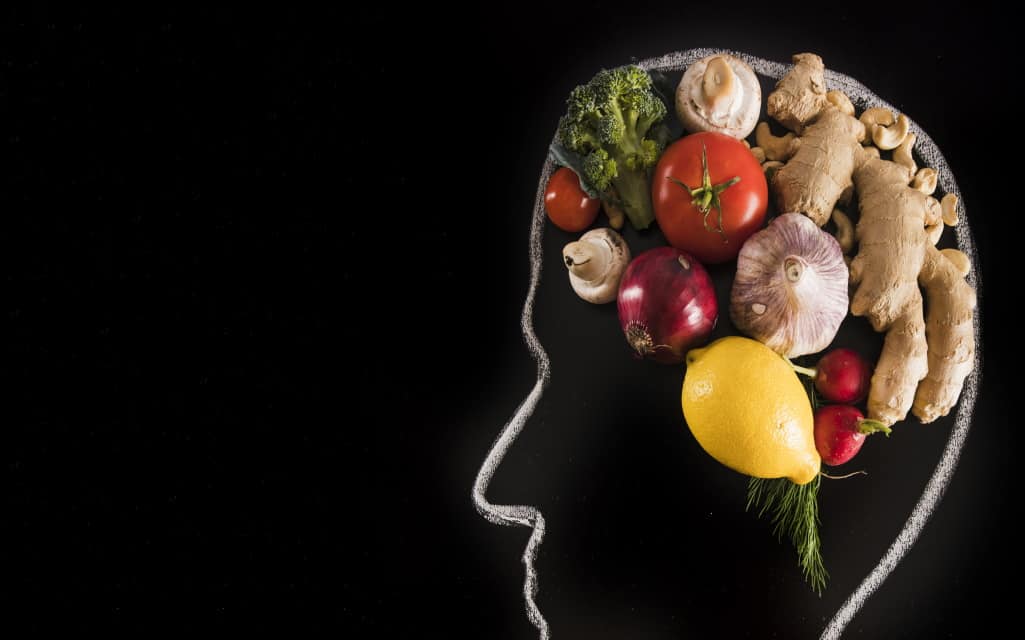Close links between our brain and our stomach mean that everything we eat has a profound effect on our mental health. The bacterial makeup of our gut to the health of our digestive tract can all have a huge physical impact on our mental wellbeing, and our psychological approach to food can add another layer of complexity to mental health. It can be tough to confront unhealthy habits, but even small changes to your diet can have a big impact on your mood. Read on to discover the multiple ways that what you eat can boost your mental health.
Foods For A Healthy Mind
We tend to think of food as a way to fuel our body, but what we eat is equally important for our mental health. From improved mood to better concentration, here’s what you need to eat for a healthy mind.
Vitamin D
Vitamin D is primarily gained through exposure to sunlight, and it’s linked to serotonin production in our bodies. Serotonin is vital to the functioning of healthy moods, and in countries on extreme northern latitudes, a lack of vitamin D through sunlight leads to a greater incidence of mental health problems.
To boost your mood, especially throughout the winter when there’s lower light levels, increasing your intake of vitamin D is a great idea. As well as supplements, mushrooms are a fantastic source of vitamin D. These earthy vegetables are a great winter treat and can really improve your wellbeing.
Magnesium
Our bodies are complex, interlinked environments and recent research has been drawing attention to the relationship between our mind and our gut. An imbalance of gut bacteria has now been linked to depression and anxiety. A holistic approach to promoting mental well-being is clearly necessary.
Mineral deficiencies in your gut can lead to bad bacteria flourishing, so topping up your magnesium intake is a great way to battle low moods. Dark chocolate, almonds and cashews are packed with minerals and they make a tasty snack. Keep on top of your gut.
Folate
Vitamin B is crucial to the production of dopamine in our bodies, which in turn plays a role in our ability to feel pleasure. Traditionally we’ve spoken of chocolate as a way of activating dopamine production in our bodies, but sugar causes dramatic fluctuations in dopamine levels – a surge, followed by a crash.
Prioritising folate, also known as vitamin B9, in our diets is a healthy way to promote dopamine production, giving us healthier and happier moods. Folate is found in leafy greens and lentils, so stock up!
Fatty Acids
Fatty fish – or as my mother used to call it, “brain food”. There’s truth to these old wive’s tales, as oily fish such as mackerel or salmon are packed with omega-3. Omega-3 fatty acids literally help us build new brain cells, and are vitally linked to brain health.
A healthy intake of omega-3 is linked to enhanced cognitive function and improved memory. Cast the net for better mental health! You can buy tilapia fish too.
Read More: Shocking Ways Chronic Stress Affects your Mental Health
Healthy Habits
What we eat plays a huge role in our mental health, but the way we engage with food is also hugely significant. Here are some tips for healthy habits around food.
Plan ahead
Taking shortcuts never helps, and relying on fast food packed with preservatives can have a deeply unhealthy effect on our mental wellbeing. Planning your meals ahead gives you the chance to take control of your diet – making healthy choices while shopping and cooking in batches means you’ll always have a healthy meal on hand.
Start the day right
In the hustle and bustle of the morning, it’s easy to forget something – from our house keys to breakfast. This meal is easily missed, but it’s vital to setting ourselves up for a good day. A healthy breakfast of oatmeal and fruit will boost your concentration and give you better energy levels for facing the day ahead.
Keep a diary
If you’re struggling to make positive changes to your diet, consider keeping a food diary. For something so fundamental to our survival, we often eat in exceptionally unconscious ways and creating a diary helps us to examine our habits. Be honest with yourself, keep a record of what you eat, and celebrate positive changes as you make them.
Bon Appetit
Making small changes a day at a time can have a big impact on your mental health. Food habits are highly ingrained, so be patient with yourself when it comes to finding new routines. Bon appetit!



